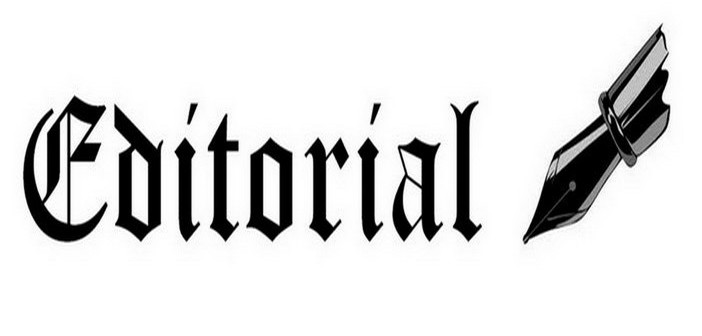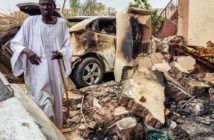The “Arab Spring” dissipated itself as slightly absurd dreams do…
It very quickly fainted in the memory of the media and seems to have fallen into oblivion, like the dream of which one does not remember any details, nor the dénouement; a terrifying nightmare, from which the mass media have turned away, as if they wanted to avert the reality, which today denies all their euphoric statements of before.
That is too often, unfortunately, the rule in the editorial departments; always say as everybody does, to be sure not to say something wrong and be on your own… and never say anything about committed mistakes: one should not “disorientate” the reader, who would not understand that the paper he holds in his hands does not (always) tell him the truth.
In such a way Tunisia is slowly engulfed in a terror, which knows very well how to bring this small country to its knees, whose GDP relies on tourism for about 7 to 10%, which in turn supplies about 15% of the working population with jobs from associated sectors – more than half a million people. The two great blows that struck the country hit two mainly touristic and symbolic spots – the prestigious Bardo Museum on the 18th of March 2015 and one of the most beautiful beaches of the country, near to Sousse, on the 26th of June 2015. These two events were enough to reduce to nearly nothing the titanic efforts, which Tunisian companies had recently made to bring back the charter flights full of tourists, consuming Tunisian goods. The broken prices, the reduced wages of overexploited employees, even more than at the time of Ben Ali, for the joys of mass tourism, the advertisement boards displaying impeccable white beaches, blue seas and sunbeds in the shade of palm trees… as of now, they do not change anything; those images have been replaced by those of dead bodies and of blood. Those tour operators that decided to return to North Africa have left again as quickly as they arrived and consequently bankruptcies are multiplied, speeding up the vicious spiral of economic marasmus and popular discontent.
Also in Egypt tourism has not yet really come back (In Cairo and Alexandria hotels are filled to less than half of their capacity, less than 15% in upper Egypt); the causes: not a day goes by that the police do not shoot demonstrators or without some bombs exploding here and there… and an Egyptian Islamic State has occupied the Sinai. On the other hand, the dictatorship has come back quite well, more fierce than ever since the death of Gamal Abdel Nasser (1970); special forces track the opposition, those that protested on Tahrir square in 2011, the students especially, who disappear and are found – filled with bullets – in the desert… The show of strength that had immediately been played between the Muslim Brotherhood and the army has hence been won by the army – to the great relief of the West, as of now cynically mute.
Yemen has become the battleground of a cold war that opposes Iran and Saudi-Arabia. President Hadi, the only candidate (sic) for the succession of the dictator Saleh – who by the way has recently caught up in the race for power – fled to Aden, abandoning the capital, Sanaa, to the rebelling Houthis, supported by Iran. The tribes and their clans tear each other apart again so as to divide the corpse of a country, one of the poorest on the planet. Thousands of al-Qaeda fighters are rubbing their hands thanks to all this chaos and prosper happily in the East of the country, of which they already hold most cities.
What about Syria? A country that is now only mentioned in the news when the world is worried about the expansion of the extremist territories, without worrying neither about the millions of displaced and ruined Syrians, the hundreds of thousands of refugee families, living in poverty, without help, often having lost a brother, a father or children assassinated by war, nor finding it worth mentioning the last brigades of the Free Army that is still fighting desperately, in Aleppo or the suburbs of the capital… Syria, the place where the revolution was supposed to win the fight against the Baathist party and Bashar al-Assad, according to many observers back in the day, but where now the same two still haunt the palaces of Damascus, when two thirds of the country have in the meantime been annexed by the Islamic State.
In Libya, well…
I remember… – it was in 2011 – a member of the European parliament stated “The forces of the NATO have well done their work, extremely well even, in good complementarity with the rebels on the field!”; I had pronounced a few doubts about this story, but I was asked to be quiet.
Libya has entirely disappeared from the news. The country is now also light years away from the hysteric predictions of the chroniclers, who, one more than the other, arrogantly condemned Ghadafi’s regime…
Plunged into the darkest chaos, this non-nation with vertiginous debts continues on a spiral of decline, opposed to the many factions, weakened by its two governments, its two parliaments, which control Tobruk and Tripoli. Respectively, they are preparing for a civil war without ending, with in the background the laughter of the independentist Berbers of Jebel Nefussa and the clans of Zenten – who still hold like a spoil of war, Saif al-Islam Kaddafi, the oldest son of the deceased dictator, whom they refuse to deliver to the UN and whom they allegedly already cut off three fingers. This way the country ventures deeper and deeper into the control of the legions of the Islamic State who already controls many cities, of Sirte for instance, and spreads, as in Syria and Iraq, despite the not very heroic efforts of a general who had probably hoped to take with him what was left of the regular army, to engage the Islamists and impose his protectorate on the tribes.
But maybe the media will more amply report on the legacy of this country, when, one day, the flag of the Jihad will fly over Benghazi and Tripoli, as it already does on the outskirts of Baghdad and Damascus.



